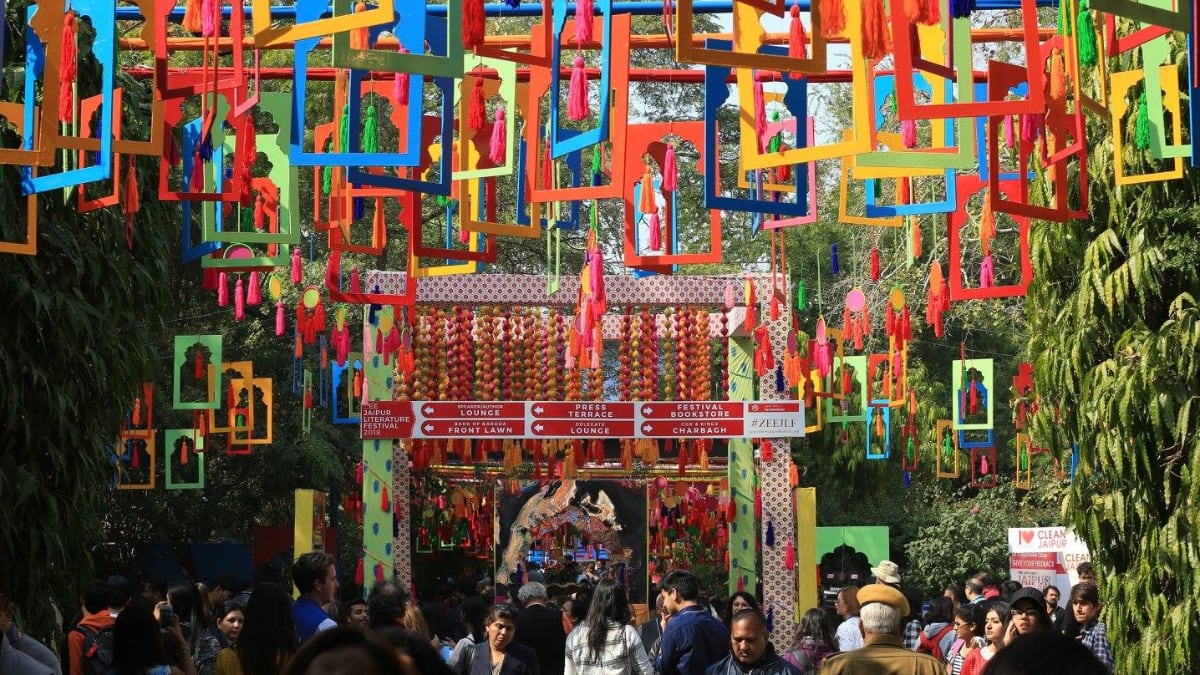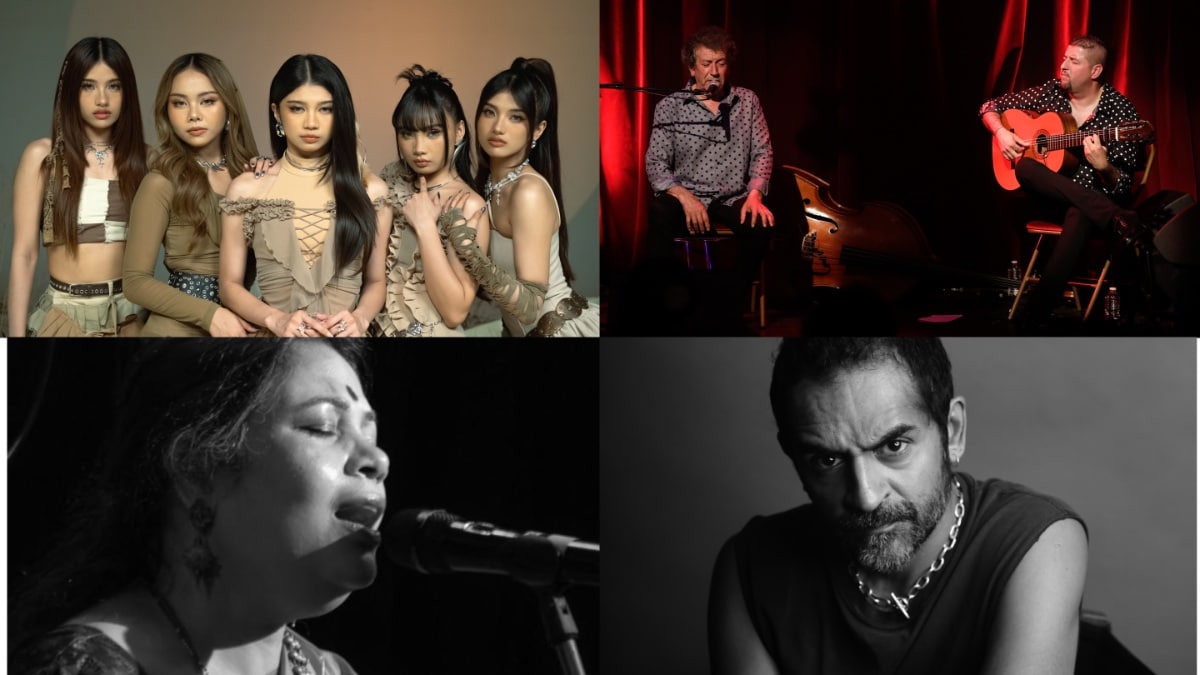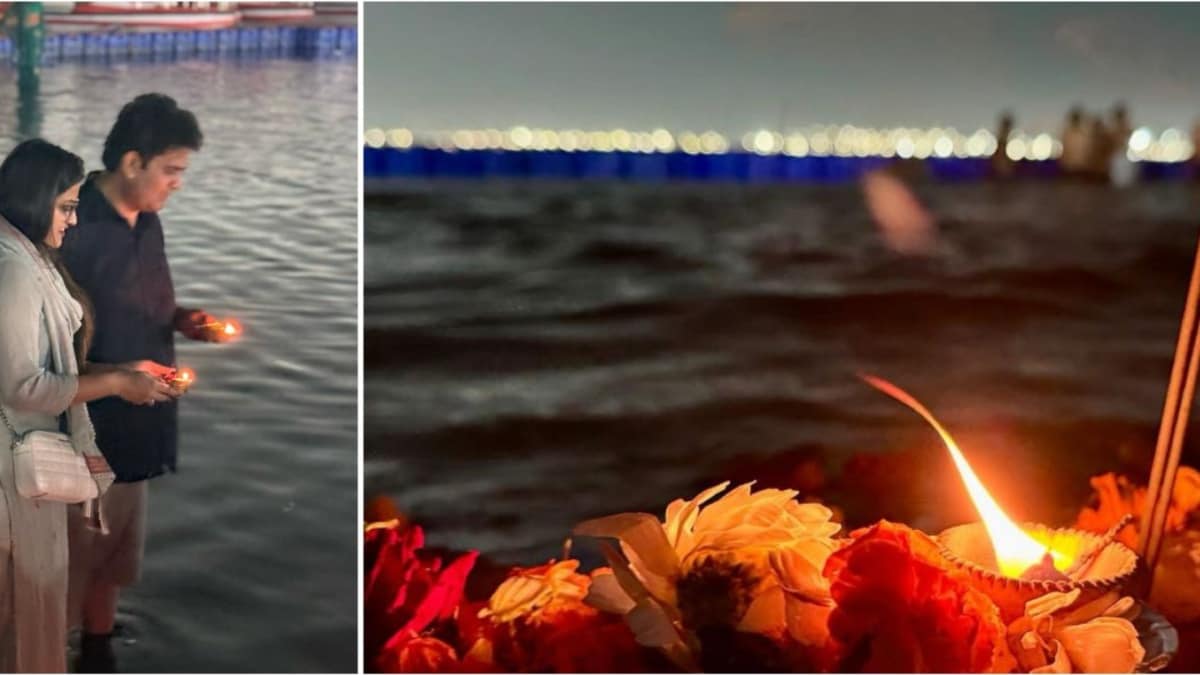India's Banu Mushtaq makes history at the International Booker Prize: Who is she?
Banu Mushtaq, a trailblazing writer, lawyer and activist from Karnataka, has become the first Kannada author to win the prestigious International Booker Prize for her short story collection 'Heart Lamp'. Translated by Deepa Bhasthi, this landmark achievement marks a new chapter for Indian regional literature on the global stage. Here's what we know about Banu Mushtaq
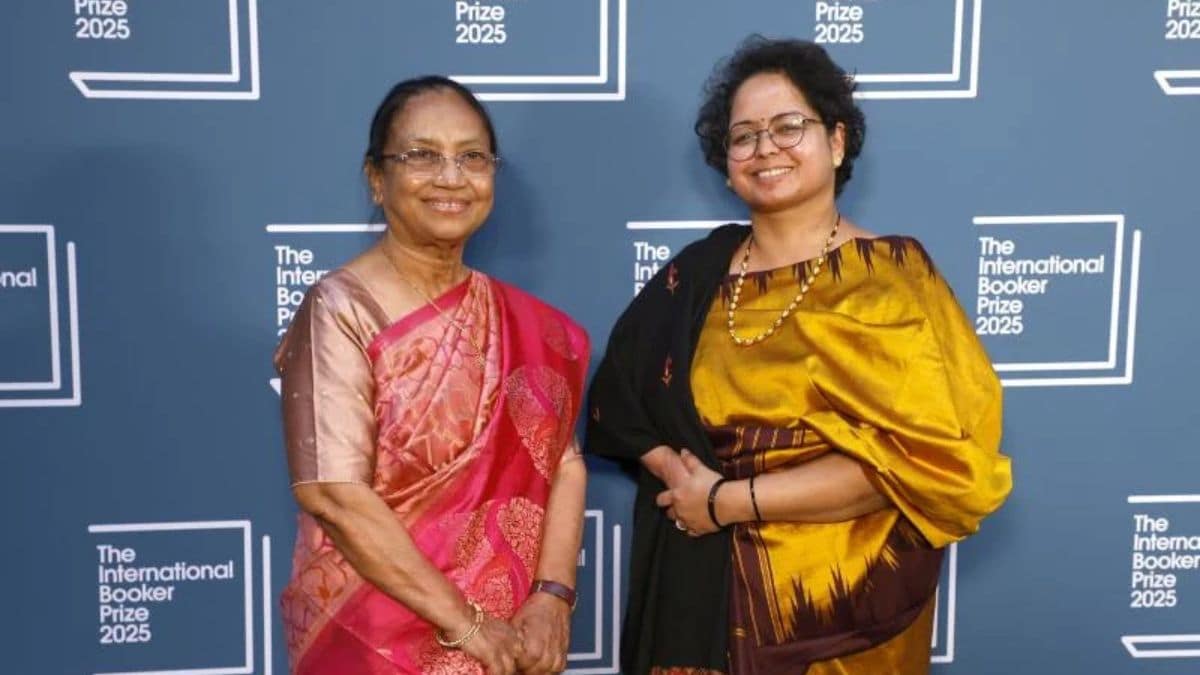
Banu Mushtaq has change into the first Indian author writing in Kannada to pick out up the popular International Booker Prize, marking a watershed 2d for regional Indian literature on the worldwide stage.
Her award-successful work, Coronary heart Lamp, is a sequence of twelve short reviews translated into English by Deepa Bhasthi.
The guide (usual title in Kannada: Hridaya Deepa), which traces an extended time of Mushtaq’s literary output from 1990 to 2023, became as soon as recognised for its compelling portrayals of familial and societal warfare in Karnataka.
STORY CONTINUES BELOW THIS AD
The announcement became as soon as made at a ceremony held at Tate Mute in London on Tuesday night (May 20, 2025), the put both Mushtaq and Bhasthi were demonstrate to receive the award.
More from Explainers
)
)
The International Booker Prize, valued at GBP 50,000 (roughly ₹57,50,000), is equally shared between the author and translator. This makes Coronary heart Lamp no longer only the first Kannada title to pick out up the award nonetheless also the first short story sequence to attain the glory.
Mushtaq expressed her gratitude by stating, “This guide became as soon as born from the assumption that no story is ever small, that in the tapestry of human experience every thread holds the burden of the full.”
Reflecting on the unifying energy of literature, she added, “In an worldwide that on a conventional foundation tries to divide us, literature stays one of the indispensable lost sacred spaces the put we can stay internal every other’s minds, if only for a couple of pages.”
Who is Banu Mushtaq
Born in the Forties in Shivamogga, a small metropolis in the southern Indian issue of Karnataka, Banu Mushtaq grew up in a conservative Muslim household the put ladies in overall studied the Quran in Urdu.
Nonetheless, her father, a authorities employee, sought broader academic alternatives for her. At the age of eight, he enrolled her in a convent college the put the medium of instruction became as soon as Kannada.
STORY CONTINUES BELOW THIS AD
Regardless of initial resistance from the college authorities, who feared she may no longer adapt, Mushtaq mastered the language internal days, shared The Hindu in a March myth. Kannada later became the language of her literary expression.
Mushtaq’s toddle as a author began in her college years, and she pursued greater education whilst societal expectations pushed her mates toward early marriage. She married at 26, nonetheless her early years of matrimony were marked by hardship, collectively with postpartum despair and home restrictions.
In an interview with Vogue, Mushtaq shared, “I had always desired to write nonetheless had nothing to write (about) on story of , after a like marriage, I became as soon as told to put on a burqa and dedicate myself to home work. I became a mother tormented by postpartum despair at 29.”
Her topic reached a breaking point when she attempted to space herself on fire, an very good searching 2d averted by her husband. As she recounted in an interview with The Week, “As soon as, in a match of despair, I poured white petrol on myself, desiring to space myself on fire. Fortuitously, he sensed it in time, hugged me, and took away the matchbox. He pleaded with me, placing our toddler at my toes announcing, ‘Don’t abandon us.’”
STORY CONTINUES BELOW THIS AD
These deeply private experiences fashioned her reviews. Her female characters judge the restful braveness and resistance she embodied in her like lifestyles.
The Indian Particular highlighted this part, noting in a overview, “In mainstream Indian literature, Muslim women folks are veritably flattened into metaphors — mute victims or tropes in yet any other particular person’s upright argument. Mushtaq refuses both. Her characters endure, negotiate, and now and again beat support — no longer in ways that relate headlines, nonetheless in ways that topic to their lives.”
How Mushtaq has challenged societal inequalities
Mushtaq became as soon as a prominent inform in the Bandaya Sahitya (Reveal Literature) circulate of the Seventies and 1980s, which challenged caste and gender hierarchies in Kannada literature.
As one of the indispensable few female Muslim writers linked with the circulate, she extinct her platform to highlight systemic inequalities and the lived realities of marginalised communities.
Her literary portfolio spans six collections of short reviews, a novel, an essay sequence, and a volume of poetry. She also labored as a reporter for a local tabloid and later took up law to enhance her family.
Her writings, published over four an extended time, were translated into Urdu, Hindi, Tamil and Malayalam. In 2024, one other translated volume, Haseena and Other Tales, obtained the PEN Translation Prize.
STORY CONTINUES BELOW THIS AD
Mushtaq has bought a huge number of accolades for her work, collectively with the Karnataka Sahitya Academy Award and the Daana Chintamani Attimabbe Award. Yet, her forthright views absorb made her a target.
Mushtaq has also bought threatening phone calls in 2000 after she publicly voiced her enhance for women folks’s simply to hope in mosques.
Following her remarks, a fatwa — an Islamic factual ruling — became as soon as issued against her, and she narrowly escaped an attempted knife assault by a man who became as soon as stopped precise in time by her husband.
“One man, a known troublemaker, tried to stab me to attain notoriety. I'd absorb punished him ― he became as soon as charged below Part 307 (strive and spoil). Nonetheless my daughter Lubna, who became as soon as practising law with me, asked me to forgive him on story of he saved begging for mercy, announcing he had babies. I noticed his predicament and decided to let him plod. As soon as, he waited exterior my establish of job asking for money to aquire sweets for his children. My husband laughed, and I gave him 0600, telling him never to illustrate his face again,” she revealed in one other interview with The Week.
STORY CONTINUES BELOW THIS AD
“I absorb consistently challenged chauvinistic spiritual interpretations. These components are central to my writing even now. Society has modified a lot, nonetheless the core components remain the an identical,” she told The Week.
Deepa Bhasthi, the translator of Coronary heart Lamp
Deepa Bhasthi, who introduced Coronary heart Lamp to English-talking audiences, is a author and literary translator based in Kodagu, Karnataka.
Her published translations embody a novel by Kota Shivarama Karanth and reviews by Kodagina Gouramma. Bhasthi curated the twelve reviews in Coronary heart Lamp from Mushtaq’s physique of work, covering more than three an extended time.
She described her plan as “translating with an accent,” aiming to set the cultural texture of the usual while making the reviews accessible to a global viewers.
In her acceptance speech, Bhasthi said, “What an very good searching pick up right here's for my good-searching language.” She is the first Indian translator to pick out up the International Booker Prize.
— The Booker Prizes (@TheBookerPrizes) May 20, 2025
STORY CONTINUES BELOW THIS AD
“For me, translation is an instinctive educate in some ways, and I absorb chanced on that every guide demands a entirely varied course of. With Banu’s reviews, I first learn the full fiction she had published earlier than I narrowed it the total plot down to the ones that are in Coronary heart Lamp. I became as soon as lucky to absorb a free hand in picking what reviews I desired to work with, and Banu didn't intervene with the organised chaotic plan I went about it,” Bhasthi said in an interview with The Booker Prize Foundation.
Bhasthi’s work on Coronary heart Lamp also bought English PEN’s PEN Translates award. Her nuanced plan and deep engagement with Mushtaq’s textual remark were central to the guide’s worldwide recognition.
About Coronary heart Lamp
Printed in April 2025 by And Other Tales, a Sheffield-based fair press, Coronary heart Lamp stood out among 154 entries submitted by publishers.
The prize jury, chaired by novelist Max Porter, selected six books for the final shortlist. Porter praised Mushtaq and Bhasthi’s collaboration as “a radical translation which ruffles language, to impress new textures in a plurality of Englishes.”
STORY CONTINUES BELOW THIS AD
The guide became as soon as described by the judges as “witty, radiant, colloquial, transferring and excoriating,” offering deeply private and universally resonant portraits of team and resilience.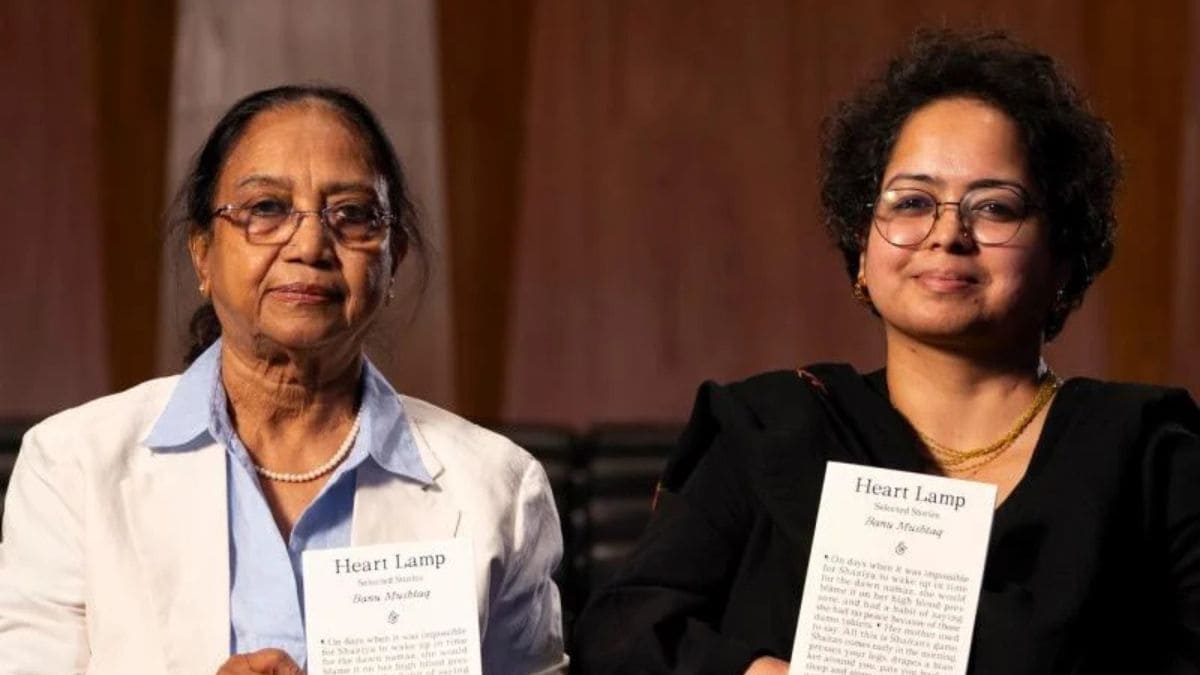
Other shortlisted works integrated Solvej Balle’s On the Calculation of Quantity I, Vincent Delecroix’s Small Boat, Hiromi Kawakami’s Under the Gaze of the Big Chicken, Vincenzo Latronico’s Perfection, and Anne Serre’s A Leopard-Pores and skin Hat.
Mushtaq is barely the 2d Indian author to pick out up the International Booker Prize after Geetanjali Shree, whose Hindi novel Tomb of Sand, translated by Daisy Rockwell, obtained in 2022.
“My reviews are about women folks – how religion, society, and politics query of unquestioning obedience from them, and in doing so, inflict inhumane cruelty upon them, turning them into mere subordinates. The day-to-day incidents reported in media and the private experiences I absorb persevered were my inspiration. The pain, suffering, and helpless lives of these women folks affect a deep emotional response internal me, compelling me to write,” Mushtaq said in an interview with The Booker Prize Foundation.
Karnataka Chief Minister Siddaramaiah also lauded Mushtaq’s success writing in a post on X (formerly Twitter), “Banu Mushtaq, who embodies and writes with the coolest values of this land, which is cohesion, secularism, and brotherhood, has raised the flag of Kannada’s greatness on the worldwide stage and introduced honour to all of us.”
— Siddaramaiah (@siddaramaiah) May 21, 2025Heartfelt congratulations to Kannada’s pride, author Banu Mushtaq, who has been awarded the International Booker Prize. Right here's a 2d of celebration for Kannada, Kannadigas, and Karnataka.
Banu Mushtaq, who embodies and writes with the coolest values of this land, which is… pic.twitter.com/yKhxUNZ2ax
Banu Mushtaq’s International Booker Prize pick up is more than a private triumph; it is a landmark for Kannada literature and a broader recognition of voices that absorb long remained on the periphery.
With inputs from companies
What's Your Reaction?















































